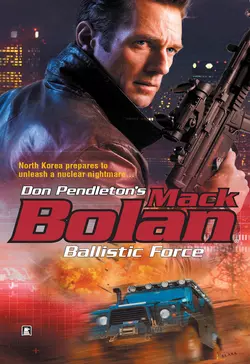Ballistic Force

Don Pendleton
Тип: электронная книга
Жанр: Книги о приключениях
Язык: на английском языке
Стоимость: 536.55 ₽
Статус: В продаже
Издательство: HarperCollins
Дата публикации: 16.04.2024
Отзывы: Пока нет Добавить отзыв
О книге: A raid on Korean gang activity in California takes a dangerous turn into a world crisis, when Mack Bolan uncovers intelligence involving North Korea′s nuclear weapons program.A group of high-level defectors from the Project Kanggye Nuclear Team– scientists with first-hand knowledge of North Korean missile strike capabilities–is being systematically abducted back to their homeland.Unable to stop the kidnappers before they complete their mission, Bolan and elite Stony Man team members track the enemy to the Changchon Mountains, where North Korea′s despotic leader is about to achieve pre-emptive strike capability with enough hidden nuclear warheads to sprout mushroom clouds all across America.